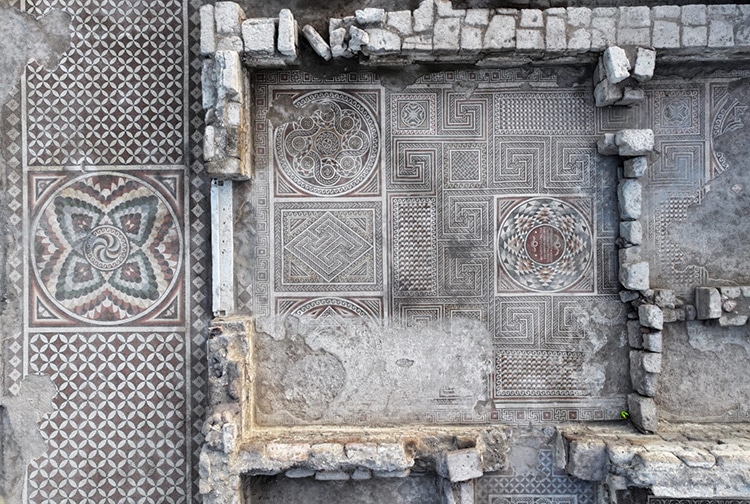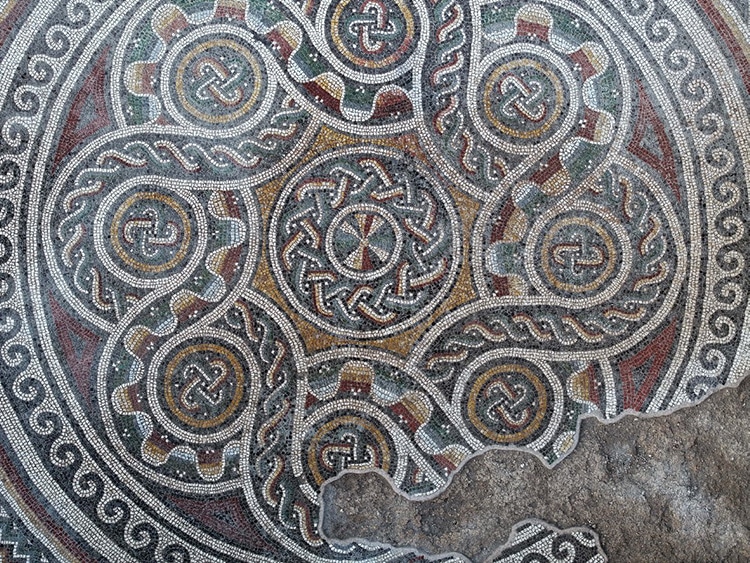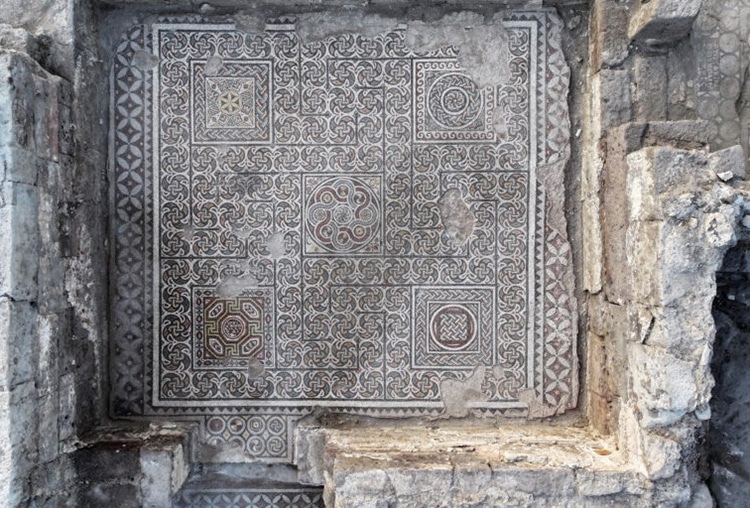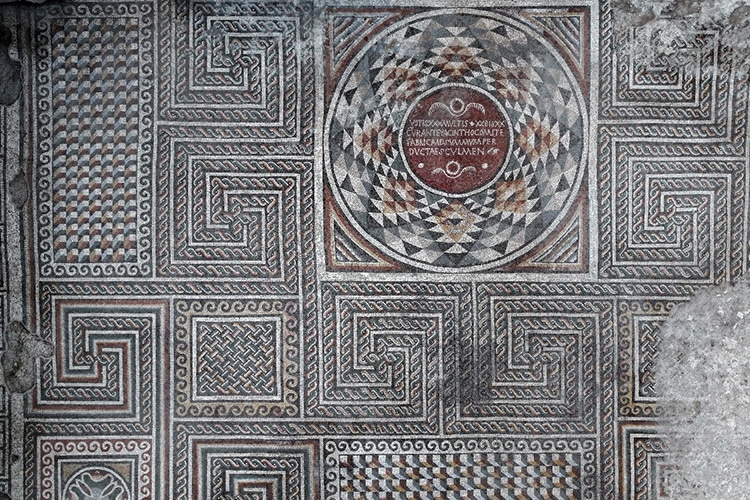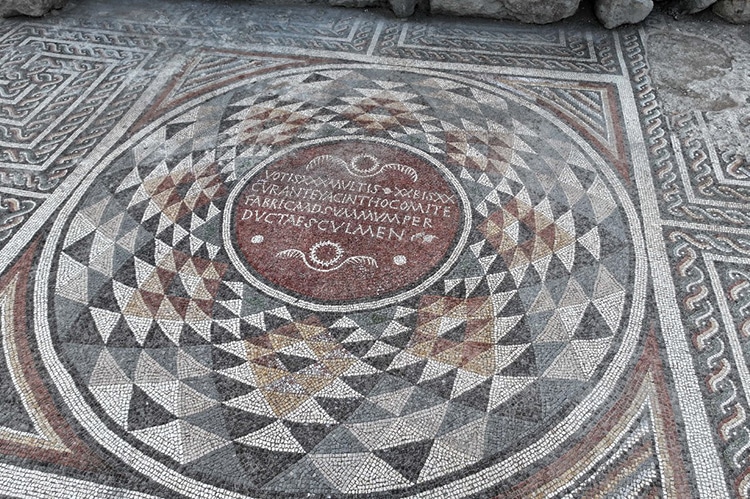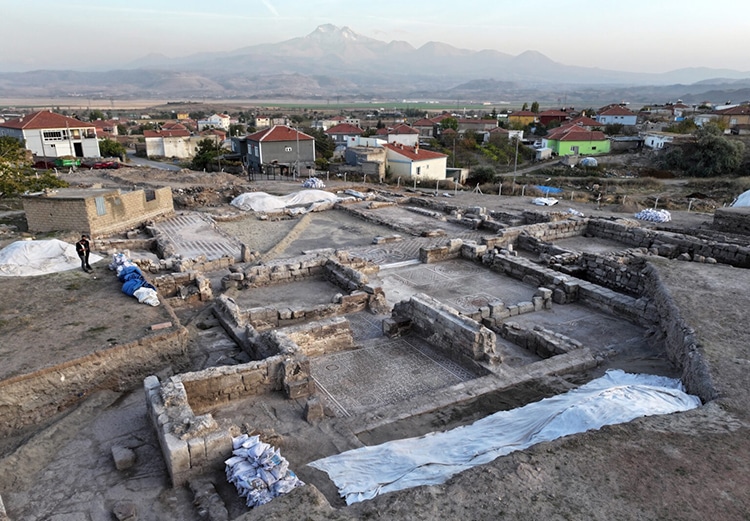Anyone who has studied ancient Roman architecture knows they never missed an artistic moment. From elaborate columns to painted plaster to marble statues, Roman villas in particular were true showstoppers. Even the floors were beautifully decorated with rich, intricate mosaics. One villa in the village of İncesu, in the province of Keyseri, Turkey, is a standout even among the incredible floors of Roman yore. The massive site in Anatolia is the largest Roman mosaic discovered in the region, with 6,500 square feet emerging this year alone. The mosaics are incredibly well-preserved. They include geographic designs and inscriptions in Greek and Latin.
The site of the villa sits above the ancient town of Sadogora, inhabited in the late Roman and early Byzantine periods. Excavations have been ongoing, with pauses for legal reasons, since 2010. So far, at least 10 rooms have been discovered across 43,000 square feet of excavated site, and 6,500 square feet of that is the mosaic flooring. The home was probably one for local elites or administrators of empire. The villa was estimated to be built in the third and fourth century CE, although it was likely used after the fall of Rome throughout the Byzantine and Islamic periods.
The mosaic is elaborate and expansive. The vast majority are patterns, which according to the History Blog include “simple guilloche (two interlaced strand lines), chain guilloche (the interlaced strands tie together like a linked chain), 3D cubes, Solomon’s knots, wave bands, meanders, ribbons, diamonds, swirls and much more.” One Latin inscription honors an unknown official name Hyacinthus; a Greek one is more clear: “If you are healthy, enter.”
Can Erpek, professor at Nevsehir Haci Bektas Veli University, explains, “We are talking about a high-end residence spread over a very large area, a residence with 33 rooms, we have not reached the limits of this residence, we foresee that the current residence will expand even further with our excavations that will continue next year. When we think of Cappadocia and the Central Anatolia Region, which has very valuable floor mosaics, we do not see floor mosaics on such a large residential floor.” It will be fascinating to see just how much more mosaic artwork appears with further excavation.
An incredible Roman-era villa in Turkey has yielded 10 rooms full of ornate mosaic with repeating patterns.
h/t: [Colossal]
Related Articles:
5,000-Year-Old Unopened Wine Jars Found in Queen’s Tomb
Perfectly Preserved 2,100-Year-Old Child’s Shoe Discovered in an Austrian Salt Mine
Archeologists Uncover Neolithic Stone Tomb With Hugging Skeletons in Scotland
Giant Buried Pyramid ‘Gunung Padang’ in Indonesia May Be the World’s Oldest

